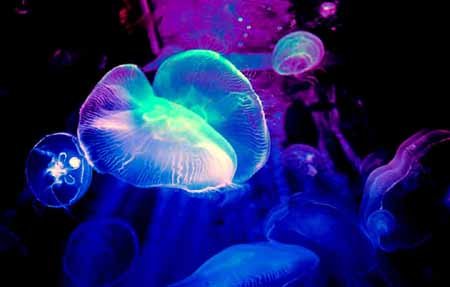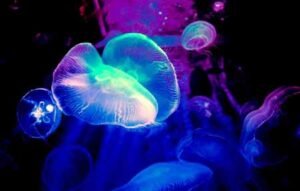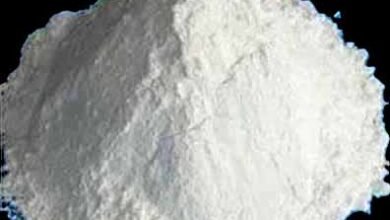
Related To Biology-156.
|
1. The largest living mammal is? = Blue whale. 2. Who is the centre of respiration within the cell? = Mitochondria. 3. Which animal has the shape of foot slippers? = Paramecium. 4. Who is a flying lizard? = Draco. 5. Which is the largest fish found in India? = Whale shark. 6. The famous paddy disease ‘Khaira disease’ is caused by = Zinc Deficiency in the soil. 7. Which organelle of the cell changes the energy of food? = Mitochondria. 8. Which scientist did the rendering of ‘cell theory’? = Schleiden and Schwann. 9. Peptide bonds are present in between = Amino acid. 10. Where does protein synthesis take place? = Ribosome. 11. Which chemical is mainly present in bones and teeth? = Calcium. 12. Haemophilia is a genetic disease, what results from it? = fails to clot blood. 13. What is the normal blood pressure of a human? = 120/80. 14. Malaria disease is spread by? = By female anopheles. 15. Which fungus is used in the alcohol industry? =Yeast. 16. What does the word ‘CAT’ scan used by doctors mean? = Computerized Axial Tomography. 17. What is the most useful function of the body due to sweating? = Maintains the body temperature. 18. ‘Tetanus disease’ is caused by which bacteria? = Clostridium tetani. 19. Which gland of the human body is called the ‘master gland’? = Pituitary. 20. What are the elements obtained from microorganisms that are used to destroy microorganisms? = Antibiotic. 21. Which part of the human body causes Pyorrhoea? = Teeth and gums. 22. Where are red blood cells formed? = In the bone marrow. 23. What is the gland acting as the thermostat of the body? = Hypothalamus. 24. In humans, Filaria (philpanva) disease takes place by which pathogen? =. Wuchereria, transmitted by the female mosquito vector. 25. In humans, malaria disease is caused by which pathogen? = Plasmodium a protozoa, transmitted man to man by female Anopheles mosquito as vector.
Dr. (Prof.) Amarendra Kumar ========== ========= =========== जीव विज्ञान से संबंधित-156.
1. सबसे विशाल जीवित स्तनपायी प्राणी है? = नीली ह्वेल. 2. कोशिका के भीतर श्वसन का केन्द्र कौन होता है? = माइटोकॉण्ड्रिया. 3. किस जंतु की आकृति पैर की चप्पल के समान होती है? = पैरामीशियम. 4. कौन एक उड़ने वाली छिपकली है? = ड्रेको. 5. भारत में पायी जाने वाली सबसे बड़ी मछली कौन-सी है? = ह्वेल शार्क. 6. धान का प्रसिद्ध रोग ‘खैरा रोग’ किसके कारण होता है? = मृदा में जिंक की कमी के कारण. 7. भोजन का ऊर्जा में परिवर्तन कोशिका के किस भाग में होता है? = माइटोकॉन्ड्रिया. 8. ‘कोशिका सिद्धान्त’ का प्रतिपादन किस वैज्ञानिक ने किया था? = श्लाइडेन और श्वान. 9. पेप्टाइड बन्ध किसके बीच में उपस्थित होते हैं? = अमीनो अम्ल. 10. प्रोटीन का संश्लेषण कहाँ पर होता है? = राइबोसोम. 11. हड्डियों एवं दाँतों में मुख्य रूप से कौन-सा रसायन होता है? = कैल्शियम. 12. ‘हीमोफीलिया’ एक आनुवंशिक रोग है, जिसका क्या परिणाम है? = रक्त का थक्का जमने में विफल. 13. मनुष्य का सामान्य रक्तचाप कितना होता है? = 120/80. 14. मलेरिया किसके द्वारा फैलता है? = मादा ऐनोफिलीज. 15. एल्कोहॉल उद्योग में किस कवक का प्रयोग होता है? = यीस्ट. 16. डॉक्टरों के द्वारा प्रयुक्त शब्द ‘CAT’ स्कैन का क्या अर्थ है? = कम्प्यूटराइज्ड एक्सियल टोमोग्राफी. 17. पसीना निकलने से शरीर का सबसे उपयोग कार्य क्या होता है? = शरीर का ताप नियन्त्रित होना. 18. ‘टिटेनस रोग’ किस जीवाणु से होता है? = क्लोस्ट्रीडियम टेटानी. 19. मानव शरीर की किस ग्रन्थि को ‘मास्टर ग्रन्थि’ कहा जाता है? = पीयूषिका. 20. सूक्ष्म जीवाणुओं से प्राप्त वे तत्व कौन-से हैं, जिनका उपयोग सूक्ष्म जीवाणुओं को नष्ट करने के लिए किया जाता है? = प्रतिजैविक. 21. मानव शरीर के किस भाग में ‘पायरिया’ रोग होता है? = दाँत और मसूड़ा. 22. लाल रक्त कणिकाएँ कहाँ बनती हैं? = अस्थि मज्जा. 23. शरीर के थर्मोस्टेट (ताप स्थिरांक) का काम करने वाली ग्रन्थि कौन-सी है? = हाइपोथैलेमस. 24. मनुष्यों में फाइलेरिया (फिलपनवा) रोग किस रोगज़नक़ द्वारा होता है? = वुचेरेरिया, मादा मच्छर द्वारा फैलता है. 25. मनुष्यों में मलेरिया रोग किस रोगज़नक़ के कारण होता है? = प्लास्मोडियम एक प्रोटोजोआ है, जो मादा एनोफिलीज़ मच्छर द्वारा मनुष्य से मनुष्य में फैलता है.
Dr. (Prof.) Amarendra Kumar
|






